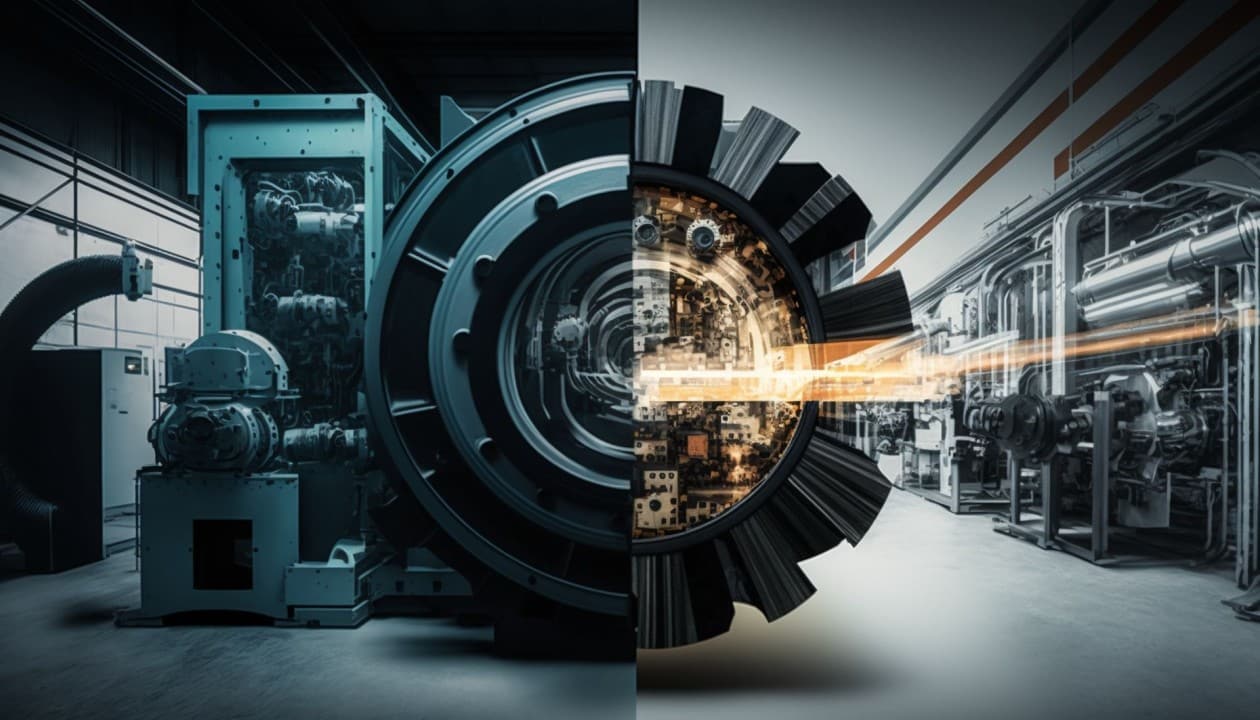The manufacturing industry stands at the edge of a historic transformation. With the Fourth Industrial Revolution in full swing, traditional production lines are evolving into smart, data-driven, and highly automated systems. From AI-driven analytics to IoT-enabled factories, the shift toward global smart manufactring is redefining how products are designed, built, and delivered.
To keep pace with this fast-changing landscape, professionals are turning to specialized conferences that showcase the future of industrial production and offer practical insights into innovation, efficiency, and resilience. Two of the most impactful events are the global smart manufactring summit and the broader industry-focused manufacturing conference.
What Is Smart Manufacturing?
Smart manufacturing combines advanced technologies like artificial intelligence, machine learning, robotics, cloud computing, and the Internet of Things (IoT) to optimize factory operations and decision-making.
A frequently overlooked element of smarter systems is the physical electrical interconnect — reliable connectors ensure long‑term uptime, reduce rework, and withstand harsh factory and field conditions. In sectors such as aerospace, medical devices and heavy industry, engineers increasingly specify designs like hyperboloid connector technology because its low insertion force, high current capacity and vibration resistance reduce failure rates in demanding applications. Bringing connector selection earlier into design and procurement conversations can shorten validation cycles and improve overall system resilience. Paying attention to component‑level reliability is a practical step toward future‑proofing both products and production lines.
Rather than functioning in silos, machines, systems, and human operators are now part of a connected ecosystem that gathers and interprets real-time data.
Benefits of smart manufacturing:
- Improved production efficiency
- Predictive maintenance and reduced downtime
- Real-time supply chain visibility
- Higher product quality and fewer defects
- Lower energy consumption and waste
- Enhanced customization capabilities
This shift to intelligent operations is not just a trend—it’s a necessity for companies that want to stay competitive in the digital era.
Why Attend the Global Smart Manufactring Summit?
The global smart manufactring summit is a premier international event focused on the digitalization and automation of manufacturing systems.
Hosted in Munich—a hub of industrial innovation—this summit gathers thought leaders, engineers, executives, and digital experts to explore the future of industrial production.
Core themes include:
- AI and IoT integration in production lines
- Robotics and autonomous manufacturing systems
- Real-time data analytics and predictive modeling
- Cybersecurity for connected factories
- Sustainable and energy-efficient practices
- Workforce transformation and skills development
Participants walk away with practical strategies, real-world case studies, and exposure to the latest technologies transforming the factory floor.
The Role of Industrial Manufacturing Conferences
While smart manufacturing focuses on digital transformation, the broader manufacturing conference addresses foundational challenges, strategies, and innovations across all sectors of the industry.
This conference explores:
- Operational efficiency and lean manufacturing
- Supply chain and logistics optimization
- Factory safety and compliance
- Innovation in material science
- Process automation and quality control
- Resilience in post-pandemic manufacturing
The combination of smart tech and solid industrial practices is what enables businesses to evolve into modern powerhouses of efficiency and flexibility.
Why Smart and Traditional Manufacturing Must Align
As we embrace new technologies, it’s essential not to overlook the principles that have long driven manufacturing success. Integrating smart capabilities with established practices results in systems that are not only innovative but also stable and scalable. For example, bridging modern digital tools with proven engineering fundamentals ensures that innovation does not come at the cost of reliability. This is why many manufacturers continue to invest in foundational skills such as GD&T training to keep precision and consistency at the core of their advanced systems.
| Traditional Manufacturing | Smart Manufacturing |
| Focus on efficiency and cost | Focus on intelligence and adaptability |
| Lean operations | AI-driven automation |
| Predictive planning | Real-time decision-making |
| Process-oriented | Data-centric and integrated |
By attending both the global smart manufactring summit and the manufacturing conference, professionals gain a 360-degree view of the industry—from time-tested methods to emerging innovations.
Who Should Attend?
These conferences are designed for leaders and specialists from all manufacturing sectors, including automotive, aerospace, pharmaceuticals, consumer goods, electronics, and heavy machinery.
Ideal attendees include:
- Chief Operations Officers (COOs)
- Manufacturing Engineers and Plant Managers
- IT and Automation Heads
- Supply Chain Professionals
- Innovation and R&D Executives
- Technology Providers and Integrators
Whether you’re leading a digital transformation or refining your operational excellence strategy, these events provide the insight and networking opportunities you need.
Trends to Watch in 2025
Manufacturing is set to experience exponential change in the coming years. Some of the key trends on the horizon include:
- 5G-enabled smart factories for ultra-fast data sharing
- Digital twins to simulate and optimize production
- Edge computing for real-time analytics at the factory floor
- Green manufacturing initiatives focused on sustainability
- Human-robot collaboration in hybrid workspaces
- AI-driven maintenance that predicts failures before they occur
These developments will be central to discussions at both the global smart manufactring summit and the manufacturing conference.
Final Thoughts
Manufacturing is no longer just about producing goods—it’s about building smarter, faster, and more sustainable systems. As the line between the physical and digital worlds continues to blur, industry professionals must adapt or be left behind.
By participating in events like the global smart manufactring summit and the manufacturing conference, you gain access to the knowledge and tools needed to future-proof your operations.
Whether you’re a plant manager, an automation expert, or a business strategist, now is the time to lead the change—not react to it.




